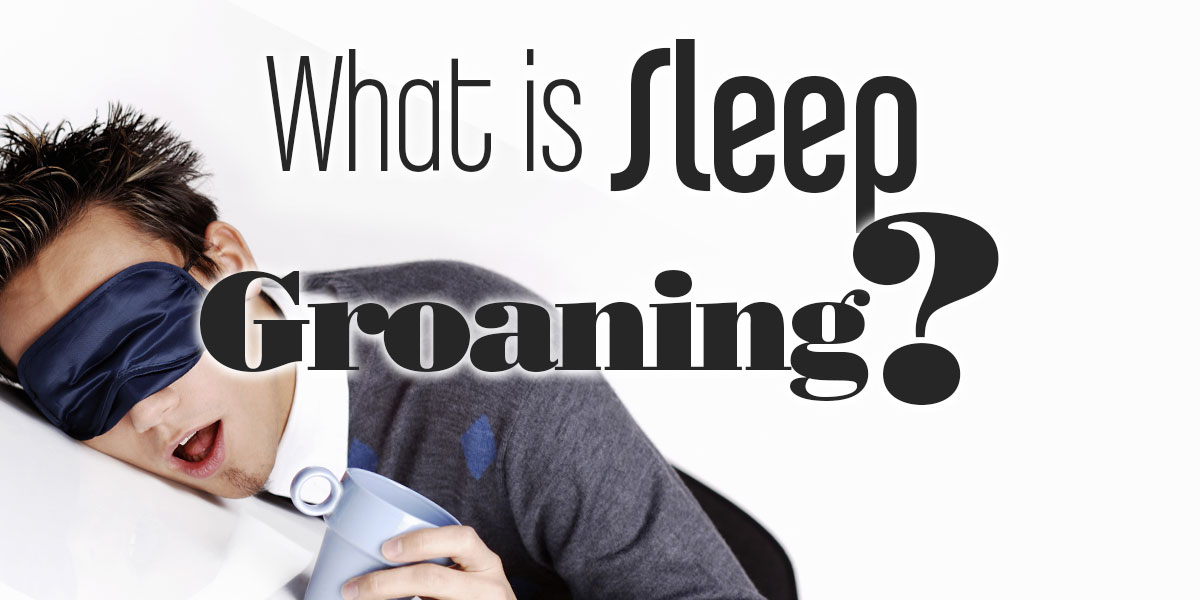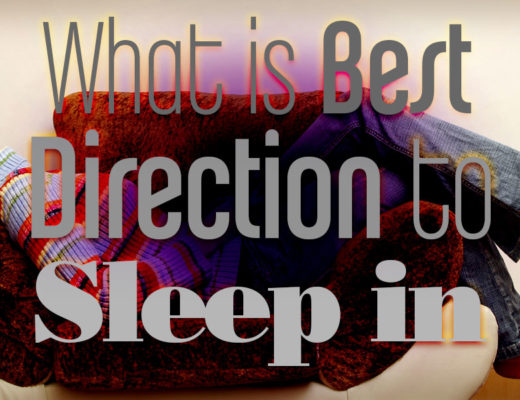People make a lot of strange noises in their sleep. Everyone recognizes snoring, but there’s a wide range of noises one can make when they’re snoozing: humming, audible changes in breathing, and even talking can all occur. But for this piece we’d like to focus on a disorder called catathrenia—you may know it better as sleep groaning.
What exactly is sleep groaning? It’s a long-term disorder that causes changes in breathing during sleep that results in a loud groaning sound. Those with catathrenia experience it frequently, either most nights or every night of the week. Groaning happens in “episodes” with multiple episodes occurring each night.
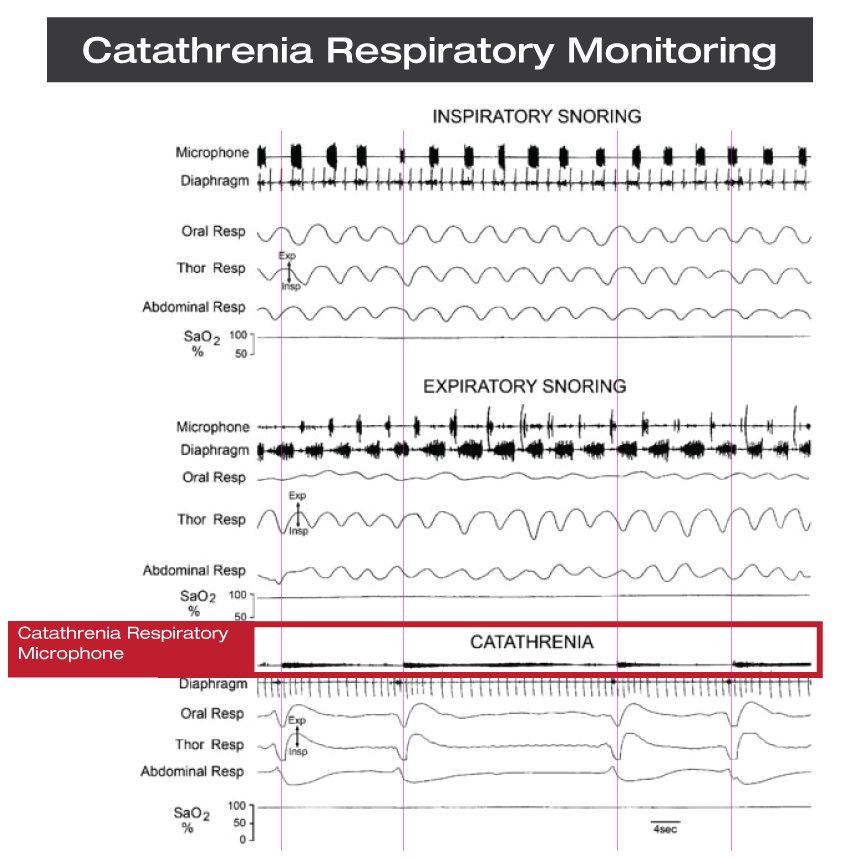
Though it’s an incredibly rare disorder, anyone with a sleeping disorder must learn to identify the symptoms of sleep groaning because it’s often misdiagnosed. Though it isn’t overtly harmful to those with the disorder, a misdiagnosis could result in treating an issue you don’t have or result in masking another disorder entirely.
What Is Sleep Groaning?
Let’s kick things off by getting into greater detail about what sleep groaning is. The disorder isn’t as commonly known among the general public as it is within the medical community; it was only recently recognized (in 1983, in fact) and has not been largely found in studies of large groups of patients. Though the interest in exploring sleep groaning exists in the medical community, the opportunity to do so has yet to present itself on a reasonably large scale, so data is currently lacking.
During an episode, your breathing slows down considerably, resulting in very deep breaths. This is followed by a pause where the breath is held and then released. It’s during the exhale that the groaning occurs, with the actual sound lasting for a few seconds or up to nearly one minute each time. Sleep groaning isn’t currently said to be dangerous itself but may disturb the rest of your partner.
Looking at that description, you might think that sleep groaning and snoring are very similar, if not the same thing. However, there is a very important distinction to be made: the noise made by snoring happens when you inhale, not when you breathe out. Also, snoring can be (though isn’t always) a product of how your head is positioned during sleep. This is not the case with sleep groaning, as your sleep position hasn’t been shown to affect it.
Something else that should be noted: though the commonly used name is “sleep groaning” and we describe the sound like a groan throughout this article for the sake of simplicity, the actual sound that’s made can vary from person to person. Many report a groaning sound, but others describe is as a loud hum or high-pitched squeak. There’s a variety to it, so looking specifically for a groan isn’t the best way to identify the disorder in others.
The actual groaning part comes in during the REM stage of your sleep cycle. We experience several repeating sleep cycles during one night’s rest. The REM stages take up a quarter of your sleep time and get longer each time the sleep cycle is repeated (the first cycle’s REM stage lasts only a few minutes while the last can be an hour or longer).
Because sleep groaning takes place during the REM stage, and REM stages grow longer as they repeat during the night, groaning becomes more frequent as the night goes on. There are breaks in between, during other stages of the cycle, but enough noise can be made during the longer REM stages to wake up others nearby (but not the person with sleep groaning themselves).
Sleep groaning is a life-long condition, though from what sleep specialists have observed it can set in at any time between early childhood years and late thirties. There’s no indication that it changes in severity over time or will stop after a set number of years.
What Causes Sleep Groaning?
That’s a question that has been asked many times, and for very good reason: we don’t know the root cause of sleep groaning. While other sleep disorders have gotten overwhelming attention and have been studied in great detail, sleep groaning has had trouble gaining the same level of traction in the medical community. Its very classification as a sleep disorder is a point of controversy for some because the cause has yet to be conclusively proven.
There are a few reasons why sleep groaning has gotten so little attention. Besides how recent its recognition was, finding patients with the disorder has proven difficult. Diagnosis relies on outside observation or the patient’s suspicion based on symptoms (more on that in a moment). It’s so rare that even those working on sleep disorders dispute how to recognize it, with some who don’t recognize it as a sleep disorder and others who are unfamiliar with it entirely.
Another reason is that sleep groaning isn’t considered a medical threat: it’s not harmful to those diagnosed and is argued by some in the medical community to be a mild hindrance at most. Symptoms that are most reported by patients include dizziness, low energy levels, increased stress, and anxiety. These symptoms aren’t considered to be high risk, thus there’s no pressure to find out what causes sleep groaning (though some people have tried, of course).
Strangely, what we currently understand about sleep groaning tells us it isn’t related to issues breathing. The studies that have been performed don’t point towards an underlying neurological or medical problem that could be the source. Given that these are common causes for major sleep disorders, there’s some dispute that sleep groaning should be categorized as such.
Looking towards common factors in patients has led to similar confusion. Some point to factors like mental fatigue and stress, but those are common among the general population, too. There are only two solid characteristics that appear in a majority of cases that seem to be of interest to the medical community: patients are undisturbed by the problem while they are sleeping, and the moment when they hold their breath doesn’t appear to cause them any distress.
Patients appear completely calm during episodes. Deeper studies analyzing pulse, heartbeat, and brain activity often show no signs of distress or even slight changes from those normal for a resting state. This is highly unusual for sleep disorders.
So we don’t know much about the underlying cause of sleep groaning, and any connections we can draw between those diagnosed appear to be inconsequential. That’s frustrating, sure, but does it matter if sleep groaning itself isn’t dangerous? Let’s talk about that.
What’s the Harm?
It may be somewhat inaccurate to say that sleep groaning isn’t dangerous. It’s not considered physically dangerous itself and isn’t directly linked to mental illness, but that doesn’t mean it is entirely without problems. With sleep groaning the potential harm lies with the side-effects.
It can have an impact on one’s quality of life. Physical symptoms like low energy, daytime tiredness, and vertigo can make it difficult to carry out daily responsibilities and lessen one’s involvement with regular activities. Equally troubling are the mental and emotional effects: it’s regularly reported that those diagnosed with sleep groaning feel higher levels of anxiety and stress, making social interactions hard and straining relationships.
This is where misdiagnosis is an issue because treating these symptoms in isolation from the cause doesn’t do much to help. You may find temporary relief from them, but with the cause still intact, nothing is preventing them from returning and worsening. It’s especially important to treat the root cause when dealing with mental health issues like anxiety.
How Is It Diagnosed, Anyway?
At this point, you’re probably wondering just how doctors can diagnose sleep groaning in the first place. After all, there’s no unanimous classification on it even being a sleep disorder, there are no distinct symptoms to point to besides recognition from an outside source that the groaning occurs, and the cause remains unknown. Seems like it would be something tricky to put your finger on, right?
Proper diagnosis begins with someone recognizing the symptoms. This can mean someone recognizing the distinct groaning sound (or someone recording it), or the patient themselves reporting symptoms they experience during their waking hours. While these symptoms aren’t a smoking gun, they can begin the process of eliminating other disorders and help narrow in on sleep groaning.
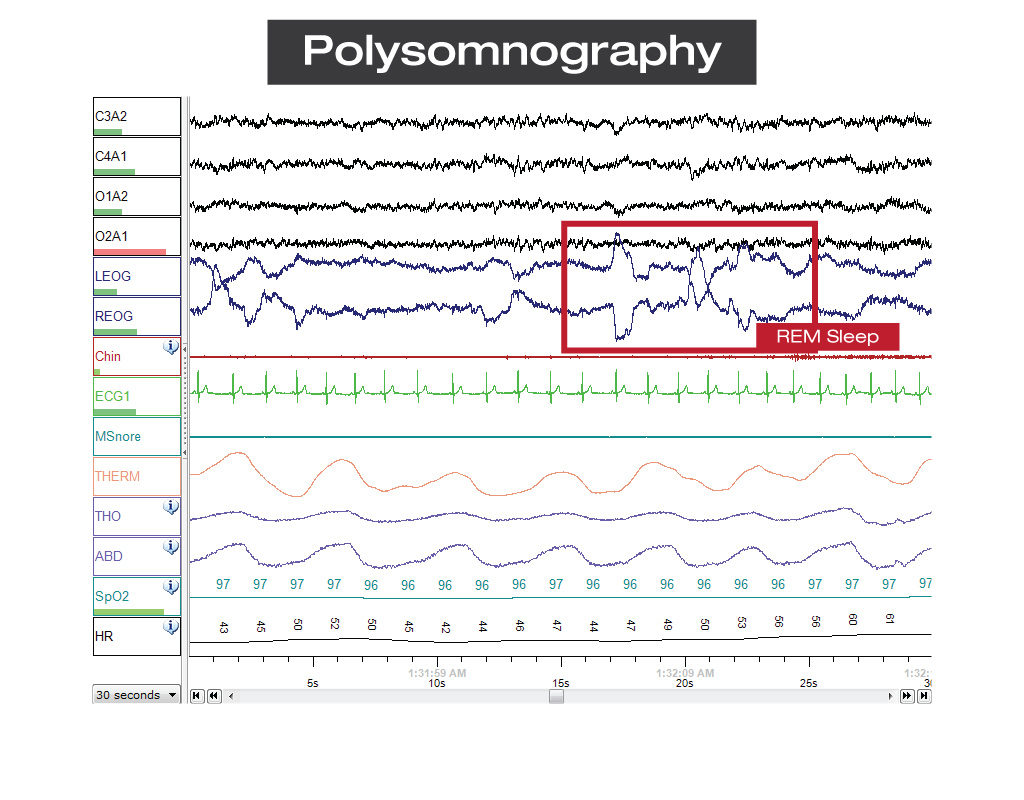 Sleep specialists can confirm sleep groaning or eliminate it as a possibility through a study called polysomnogram, which is performed at a specialized sleep center. This study goes beyond the audio cues of sleep groaning and identifies changes in breathing to see if they match up with the disorder.
Sleep specialists can confirm sleep groaning or eliminate it as a possibility through a study called polysomnogram, which is performed at a specialized sleep center. This study goes beyond the audio cues of sleep groaning and identifies changes in breathing to see if they match up with the disorder.
Eliminating other sleep disorders as a possibility is a vital part of the process. Besides being confused with other sleep disorders, the actual sound made during sleep groaning is easily mistaken for the sound made post-seizure. Someone unfamiliar with a patient’s history who observes sleep groaning for the first time may incorrectly jump to that conclusion.
As part of this process, a sleep specialist may refer you to an ear, nose, and throat doctor (also known as ENT). That’s because the other issues like snoring and sleep apnea can be diagnosed or ruled out by ENT doctors. If they make a diagnosis that rules out sleep groaning early enough, it can save you a lot of time.
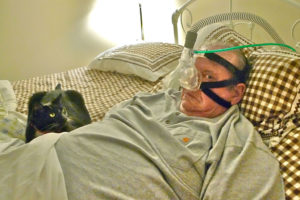
How Is Sleep Groaning Treated?
At this point, you won’t be surprised to learn that we don’t know a truly effective treatment for the disorder. Given that we don’t understand what causes it in the first place, there isn’t a singular set of treatments that address it. That isn’t to say there are no treatments, however, just that there is no consistency in their effectiveness because we don’t know what it is we’re trying to treat.
Treatments that seem to have the most success focus on the breathing aspect of sleep groaning. The use of continuous positive airway pressure (CPAP) machine while sleeping has reduced or even eliminated sleep groaning in some patients. However, others that have tried CPAP did not experience any benefits, and some people find it difficult to sleep while using the machine in the first place.
 Similarly, some patients have demonstrated that steady breathing exercises like yoga or meditation have lessened sleep groaning. Aerobic exercises have shown positive effects on others. Of course, success wasn’t universal for these methods either.
Similarly, some patients have demonstrated that steady breathing exercises like yoga or meditation have lessened sleep groaning. Aerobic exercises have shown positive effects on others. Of course, success wasn’t universal for these methods either.
It’s been proposed that treating sleep groaning as though it were sleep apnea is the most effective course of action, but the results are mixed. Of the treatments used and study, using a CPAP machine is the only one that has gained significant attention. Others don’t have enough evidence to recommend them.
That’s why it’s incredibly important that you speak to a sleep specialist and, if diagnosed with sleep groaning, take their advice rather than relying on the advice of others. Following a treatment that simply doesn’t work can be very discouraging. Trying one that’s dangerous can have even worse consequences.
What Can a Partner Do?
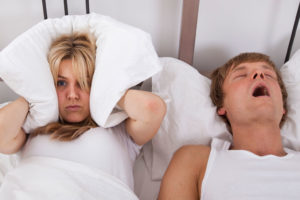 Treatment tends to focus on helping the patient’s partner sleep. Since the patient is undisturbed by their sleep groaning, minimizing the impact it has on a partner’s sleep is important to prevent sleep deprivation related issues and helps prevent the relationship from becoming stressful.
Treatment tends to focus on helping the patient’s partner sleep. Since the patient is undisturbed by their sleep groaning, minimizing the impact it has on a partner’s sleep is important to prevent sleep deprivation related issues and helps prevent the relationship from becoming stressful.
What partners can do for themselves is drown out the noise to make it less noticeable. This can be done with any device that creates a uniform sound, like a fan or white machine. Anything where the sound is consistent and the volume levels don’t fluctuate. Earplugs may also be a viable solution.
When all of these methods fail, the partner may have to sleep in another room.
Though it largely remains a mystery to us, it’s important to see a specialist if you are concerned that you or someone else may be suffering from sleep groaning. They will be able to best recognize, diagnose, and help you to minimize the impact it has on your life and those around you. Though we still don’t know much about the disorder, things can always change in the future.

